Search Results
Showing results 21 to 40 of 64
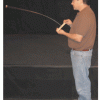
Inverted Foucault Pendulum
Source Institutions
In this demonstration, learners explore a variation of a Foucault pendulum, but upside down.

Acid Rain
Source Institutions
In this chemistry demonstration, acid rain is simulated in a petri dish.
Diffraction Between Wax Blocks
Source Institutions
In this optics activity, learners explore diffraction by adding wax blocks to a ripple tank. The wedge-shaped blocks act as obstacles that the wave must bend around.
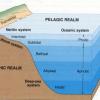
Introduction to Ocean Zones
Source Institutions
In this activity, learners will create a diagram of the ocean zones and determine what organisms live in each zone.
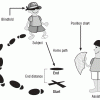
Find Your Way Around Without Visual or Sound Cues
Source Institutions
In this activity, learners play a series of simple games to investigate navigation without visual and sound cues.
Happy City
Source Institutions
Make a model city happier with LEDs, circuits, motors, and batteries! Groups can think, discuss, design, and build what would make a community happy. Kids can work as part of a team or on their own.
Coral and Chemistry
Source Institutions
In this experiment, learners will explore whether increased carbon dioxide makes our oceans more basic or more acidic.
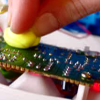
Circuit Bending with Play-Doh
Source Institutions
Break open that used musical toy and squish some Play-Doh over the circuit boards, and you will hear some weird and distorted sounds the manufacturer never intended!

Testing Antimicrobials:: Antibacterial Soap? Do They All Work the Same?
Source Institutions
Many common household cleaners are antimicrobials.
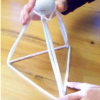
Tall Tower Challenge
Source Institutions
In this activity, learners explore the design of tall structures such as skyscrapers and telecommunication towers.
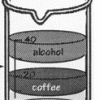
Layers of Liquids
Source Institutions
Learners pour equal amounts of coffee, mineral oil, corn syrup, and alcohol into a beaker. The liquids resolve into stacked layers, and learners can infer which liquids are the most and least dense.
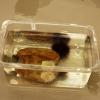
Exploration Tank
Source Institutions
This is a guide for facilitating interaction at a touch tank with marine animals. The instructions are for setting up a display in an informal science center, but could work anywhere.

Powdery Mildew Fungi: Classification and Ecology
Source Institutions
In this laboratory exercise, learners will discover how many different plant hosts they can find that are infected by the same genus of a powdery mildew fungus, or how many different genera of powdery
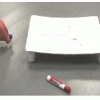
Rutherford Roller
Source Institutions
In this activity, learners make a black box device that serves as an excellent analogy to Rutherford's famous experiment in which he deduced the existence of the atomic nucleus.
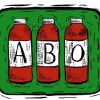
What's Your Blood Type?
Source Institutions
In this activity, learners perform a simulated blood test procedure.

Indicating Electrolysis
Source Institutions
Electrolysis is the breakdown of water into hydrogen and oxygen. This Exploratorium activity allows learners to visualize the process with an acid-based indicator.
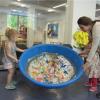
Rolling Action Art
Source Institutions
In this activity, learners of all ages will roll a ball coated with paint to artistically visualize the motion of the object.

Name That Frequency
Source Institutions
This activity was designed for blind learners, but all types of learners can model how vibrating particles, such as in a sound wave, bump into other particles causing them to vibrate, and that the vib

Dirt Life
Source Institutions
After an interest-generating discussion about "dirt" and microbes, learners select and collect soil samples from a variety of locations (schoolyard, home, etc.).
Soaring Satellites
Source Institutions
Using a vertical wind tube and using simple materials, individuals and groups attempt to design a "satellite" that floats for at least 5 seconds.
